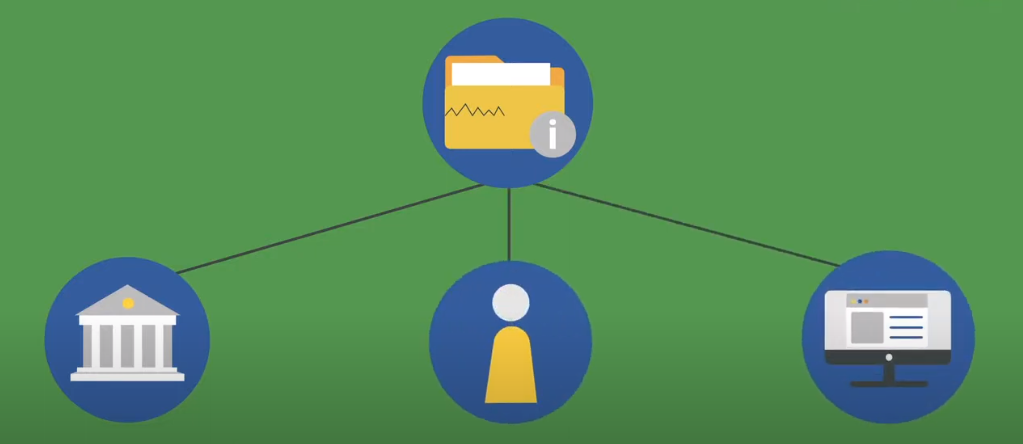Introduction
Understanding The GDPR
One of the most significant pieces of data protection legislation in recent years, the General Data Protection Regulation (GDPR), was introduced by the European Union (EU) in 2018. The GDPR is a legal framework that sets guidelines on how companies collect, process, and store personal data from EU citizens. It applies to any organization that processes the personal data of EU residents, regardless of where that organization is located.
Compliance with GDPR requires a significant change in how organizations handle and protect personal data. Companies must ensure they have appropriate technical and organizational measures in place to safeguard individuals’ privacy rights. Additionally, organizations must provide users with clear information about how their data will be used and obtain explicit consent before collecting or processing any personal information.
Scope Of The GDPR

The scope of GDPR is vast and includes organizations that are based within or outside of the EU but collect personal data from EU residents.
The GDPR applies to both data controllers and processors who process personal data on behalf of their clients. Personal data refers to any information related to an individual such as name, address, email, phone number, IP address, etc. Organizations must obtain explicit consent from individuals before collecting their personal data and ensure that it is processed only for lawful purposes.
The scope of GDPR also extends beyond traditional businesses to include non-profit organizations and government agencies. Failure to comply with GDPR can result in hefty fines up to €20 million or 4% of an organization’s global revenue – whichever is higher.
Why The GDPR Is Important For Your Data Security?

The GDPR (General Data Protection Regulation) is important for your data security is that it gives you more control over how your personal information is used. The regulation provides a number of key rights to individuals, including the right to access their own personal information, the right to have their data erased, and the right to object to certain types of processing.
In addition, complying with the GDPR can help protect your organization from potential data breaches and cyber-attacks. The regulation requires companies to implement appropriate technical and organizational measures to safeguard personal data against unauthorized access or disclosure. This includes things like encryption, access controls, regular risk assessments, and employee training programs.
Key Provisions Of The GDPR
Consent And Purpose Limitation
Consent and purpose limitation are two of the fundamental principles outlined in the General Data Protection Regulation (GDPR). Consent refers to obtaining explicit and informed permission from individuals before collecting or processing their personal data. This means that companies must clearly explain why they need the data, how they intend to use it and obtain consent before proceeding.
Purpose limitation is closely related to consent, as it pertains to only the use of personal data for the specific purposes that were initially disclosed to individuals. Companies cannot collect data for one purpose and then use it for another without first obtaining additional consent. Purpose limitation helps prevent companies from misusing or abusing personal information provided by individuals.
Right To Access And Rectify Personal Data
Under the GDPR, individuals have the right to access and rectify their personal data held by companies or organizations. This means that people can request to know what information is being stored about them and how it is being used. If they find any errors or inaccuracies in their personal data, they can ask for it to be corrected. This right ensures that individuals have control over their personal information and can take steps to protect themselves from potential harm.
To exercise this right, individuals need to submit a request in writing, either electronically or via mail. Companies must respond within one month of receiving the request, providing a copy of the data being processed and any relevant details such as its source and purpose. If there are inaccuracies in the data provided, companies must make necessary corrections without undue delay.
Right To Erasure
The right to erasure, also known as the right to be forgotten, grants individuals the power to request that their personal data be deleted from a company’s database. This means that businesses must ensure that they have appropriate mechanisms in place to facilitate this process. The GDPR requires companies to comply with these requests without undue delay and provide confirmation of the deletion.
However, there are certain circumstances where the right to erasure may not apply. For example, if retaining an individual’s data is necessary for compliance with legal obligations or for scientific research purposes, then companies may not be required to delete it upon request.
Data Portability
Data portability is a key component of the General Data Protection Regulation (GDPR). It gives individuals the right to receive their personal data in a structured, commonly used, and machine-readable format. This means that companies must provide users with copies of their data upon request, allowing them to transfer it to other service providers or use it for their own purposes.
The goal of data portability is to give users greater control over their personal information and increase competition among service providers. It also promotes transparency and accountability by requiring companies to be more open about how they collect, process, and share user data.
Data Protection By Design And Default
It requires organizations to implement appropriate technical and organizational measures to ensure that personal data is processed securely and effectively, right from the outset of any new project or system. This means that privacy should be considered throughout the entire lifecycle of any product, service, or process that involves personal data.
To achieve this goal, businesses are required to conduct regular assessments and audits of their data processing activities. This includes identifying potential risks and vulnerabilities in their systems, as well as implementing appropriate safeguards such as encryption, access controls, pseudonymization, or anonymization techniques. By doing so, companies can ensure that they are fully compliant with GDPR requirements while protecting their customers’ privacy.
Notification Of Data Breaches

Companies that process personal data must notify the proper authorities of any data breaches within 72 hours of discovery. The notification must include details such as the nature of the breach, its likely consequences, and the measures taken or proposed to be taken by the controller to address it. In addition to notifying authorities, companies are also required to inform affected individuals if their personal data has been compromised in a breach.
The notification to individuals must be made without undue delay and should provide clear and plain language detailing the nature of the breach, its likely consequences, and any recommended actions that individuals can take to protect themselves. Companies may also be required to provide additional information upon request from affected individuals.
Impact Of The GDPR On Businesses
Obligations For Businesses
Businesses have several obligations when it comes to data protection under the General Data Protection Regulation (GDPR). One of these obligations is to obtain explicit consent from individuals before collecting, processing, or storing their personal data. This means businesses must clearly explain what information they are collecting and why, and give individuals the opportunity to opt-out if they do not wish for their information to be used in this way.
Another obligation for businesses under GDPR is to ensure that personal data is kept secure at all times. This means implementing appropriate technical and organizational measures such as encryption, firewalls, access controls, and employee training. Businesses must also report any breaches of personal data within 72 hours of becoming aware of them.
Businesses must appoint a Data Protection Officer (DPO) if certain criteria are met such as large-scale processing of sensitive personal data or monitoring activities on a regular basis. The DPO will be responsible for ensuring compliance with GDPR and acting as a point of contact for individuals regarding their personal data rights.
Penalties For Non-Compliance
Failing to comply with GDPR regulations can result in a fine of up to €20 million or 4% of global annual turnover, whichever is higher. These fines are designed to ensure that companies take data protection seriously and prioritize keeping their customers’ information safe.
Impact On International Data Transfers
The GDPR states that personal data can only be transferred to third countries if there is an adequacy decision by the European Commission or if other suitable safeguards are in place. Some measures include standard contractual clauses, binding corporate rules, codes of conduct, and certification mechanisms. It’s essential to note that not complying with these provisions can result in hefty fines and reputational damage for companies.
Therefore, organizations handling international data transfers must ensure they comply with all relevant laws and regulations concerning cross-border data transfers.
Preparing For GDPR Compliance
Assessing Data Processing Activities
Assessing data processing involves analyzing personal data from different sources, determining how they are used, who has access to them, and identifying potential risks associated with their processing. This assessment allows organizations to identify areas that need improvement in terms of data protection measures and ensure that they comply with GDPR regulations.
To assess data processing activities effectively, it is essential to have an understanding of the GDPR’s principles on personal data processing. The regulation requires organizations to process personal data lawfully, transparently, and for specific purposes only. Organizations must also ensure that the personal data processed are accurate and up-to-date at all times. In addition, individuals should have control over their personal information and be able to exercise their rights under the GDPR.
Appointing A Data Protection Officer
The appointment of a DPO is mandatory for public authorities and organizations whose core activities involve processing large amounts of sensitive personal data or monitoring individuals on a large scale. It’s also advisable to appoint one voluntarily even if you don’t meet these criteria because it demonstrates your commitment to protecting personal data.
Implementing Policies And Procedures
The implementation of policies and procedures outlines how personal information should be collected, processed, stored, and disposed of. These policies should be tailored to a company’s specific needs and risks, ensuring that all employees are aware of their responsibilities in protecting sensitive data.
Conducting Data Protection Impact Assessments
DPIAs are designed to help businesses identify and mitigate any risks associated with processing personal data. They involve assessing the nature, scope, context, and purposes of the processing activity, as well as its potential impact on an individual’s rights and freedoms.
DPIAs are mandatory under GDPR when there is a high risk to individuals’ rights and freedoms. If such a risk is identified during the assessment, organizations must take measures to mitigate it or seek approval from their supervisory authority before proceeding with the processing activity.
GDPR Compliance Challenges And Solutions
Data Subject Access Requests
Any individual has the right to request a copy of their personal data that is held by any organization or company. A DSAR can be made verbally or in writing, and it must be responded to within one month. Failure to comply with a DSAR can result in significant financial penalties for organizations.
In order to respond adequately, organizations need to understand how they store and process personal data, where the data is located, and who has access to it. It is also crucial that they have policies in place for handling these requests and trained staff members who are aware of their responsibilities under GDPR. Organizations may also need to verify the identity of the requester before providing them with any information.
Consent Management
Under GDPR, organizations must provide individuals with clear and concise information about how their data will be collected, processed, and stored. They must also obtain explicit consent from individuals before collecting or processing their personal information. Consent must be informed, freely given, specific, and unambiguous.
To effectively manage consent under GDPR, organizations should implement a robust consent management system that allows them to collect and store consent records for each individual. This system should include mechanisms for obtaining and recording consent at the point of data collection as well as for ongoing monitoring of existing consent.
International Data Transfers
The General Data Protection Regulation (GDPR) has introduced stricter rules for international data transfers, making it more challenging for organizations to transfer personal data outside the EU/EEA. To ensure that organizations comply with GDPR’s requirements, they must adopt appropriate safeguards when transferring personal data.
One way to transfer personal data legally is by adopting standard contractual clauses approved by the European Commission between the controller and processor of personal information. These clauses are binding on both parties and guarantee that any transfer of information will meet GDPR standards.
Frequently Asked Questions
What Types Of Data Are Covered Under The GDPR?
The General Data Protection Regulation (GDPR) is a law that sets guidelines for the collection, processing, and storage of personal data. Personal data refers to any information that can be used to identify an individual. The GDPR covers a wide range of personal data, including names, addresses, email addresses, phone numbers, IP addresses, and even biometric data such as fingerprints or facial recognition.
The GDPR also includes sensitive personal data such as race or ethnicity, political opinions, religious beliefs, health information, and sexual orientation. This type of data requires additional safeguards to ensure its confidentiality and integrity is not compromised. To comply with the GDPR regulations on sensitive personal data collection and processing practices must be in place; this may include obtaining explicit consent from individuals before collecting their sensitive information.
Furthermore, under GDPR laws, there are special rules around children’s online privacy. In general, no one under 16 years old can give consent for their own personal data being processed by companies operating online services without the permission of a parent or guardian. Any company specifically targeting minors with their products or services should pay extra attention to how they handle minors’ personal details in order to avoid legal liabilities under GDPR laws.
What Are The Penalties For Non-Compliance With GDPR?
Non-compliance with GDPR can lead to significant financial penalties. The maximum fine for serious breaches of the GDPR is €20 million or 4% of global annual turnover, whichever is higher. For less severe breaches, the maximum penalty is €10 million or 2% of global annual turnover.
How Can Businesses Ensure GDPr Compliance?
- One of the most crucial steps that businesses can take to ensure GDPR compliance is to appoint a Data Protection Officer (DPO). A DPO is responsible for implementing and overseeing the company’s data protection policies and ensuring compliance with GDPR regulations. This individual should be knowledgeable about data protection law, have expertise in IT security, and possess excellent communication skills.
- Another key aspect of GDPR compliance is conducting a thorough audit of all personal data processed by your business. This includes identifying what types of personal data you collect, where it is stored, who has access to it, and how long you retain it. Once this information has been gathered, you will need to assess whether each processing activity complies with GDPR requirements or if changes need to be made.
- Businesses must ensure that all employees are aware of their responsibilities under the GDPR and receive training on best practices for protecting personal data. Training should cover topics such as how to securely handle sensitive information both online and offline, how to recognize potential security threats such as phishing attacks or malware infections, and what steps employees should follow if they suspect a breach has occurred. By taking these measures seriously, companies can safeguard their customers’ personal information while maintaining accountability under EU law.
What Rights Do Individuals Have Under The GDPR?
Individuals have the right to be informed about how their data is being used and processed by organizations. This includes information on why their data is being collected, who it is being shared with, and how long it will be stored.
Individuals have the right to access, allowing them to request a copy of any personal data held by an organization. They can also request that any inaccurate or incomplete information be corrected or deleted.
The GDPR provides the right to object to certain types of processing of personal data, such as direct marketing. Individuals also have the right to restrict processing in certain circumstances.
Under certain conditions such as when there is no legitimate ground for retaining data anymore or when consent had been withdrawn earlier; individuals can even ask for the erasure of all their personal data from an organization’s system.
Conclusion
The GDPR is a vital regulation that ensures the protection of data and privacy rights for individuals within the European Union. It has had far-reaching implications on businesses and industries worldwide, forcing them to adopt new data protection policies and practices. As a result, companies that process personal data must now take extra measures to ensure compliance with GDPR rules.
The implementation of GDPR brings about numerous benefits to organizations as it provides transparency in handling personal information. In complying with GDPR, companies are also able to build trust with their customers who feel more comfortable sharing their data knowing that it’s being handled securely. Additionally, by adopting privacy-by-design principles early on in product development, businesses can save significant costs down the line while ensuring they meet regulatory requirements.
